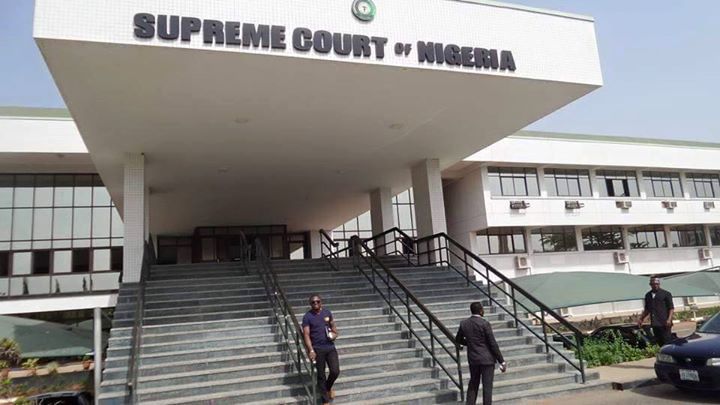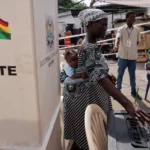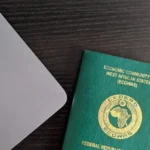The battle for Aso Rock has now shifted to where it is destined to end: the Supreme Court of Nigeria. Each of the three leading contenders in the presidential election of February 25 has assembled a glittering battery of senior lawyers to make his case before their lordships.
The judiciary is not just the refuge of the common man; it is also the refuge of the rich. Because the rich also cry – and cry too on the shoulders of judges. It is the money-making season for our senior lawyers. They reap where the politicians sowed confusion.
One of the men – Ahmed Bola Tinubu or Waziri Atiku Abubakar or Peter Obi – will go before their lordships and emerge as a confirmed winner or a confirmed loser. And there the battle for the soul of our dear country in 2023 will end. The finality in judicial pronouncements is dreaded by all litigants. The judgement of the Supreme Court, like God’s case, has no appeal.
It has become a cliché to repeat the obvious, to wit, our elections are the most disputed and the most litigated in the world. No election goes unchallenged by losers – be it an election to a village council or, as in this case, the presidency. The court dockets are already filling up with not only the challenges to the declaration of Tinubu as president-elect but also with challenges from those who lost in the national assembly elections. Many more will come post the governors and the state assembly elections next week. With the courts so tied up with election cases, justice is delayed and denied other litigants. If our politicians are happy, we are happy, right?
APC, zoning and the 10th National Assembly
Those who love this country must sympathise with our judges. I intend to send them a bag of gari. They need to build German floor in the morning before the court sits to enable them to stomach the lawyerly arguments, some of which are serious and some of which are puerile and jocular. On the pronouncements of the apex court hang the fate of our democracy and the political fate of the men who offered themselves each to take on the heavy burden of remaking when the Buhari men and women walk into their political west and become former important men and women.
It is a monumental task. How their lordships do their duty and how they interpret the law guided by their conscience as human beings make all the difference between the judicial creation of tyrants and tyranny and the promotion of fairness and justice and prevents the rule of law and the observance thereof from sinking into the cesspool of autocracy and arrogance.
The resolution of our election disputes in the courts of law must be accepted as evidence that although the juju man remains a veritable fall-back position in case organised religions fail to deal with our enemies, Nigeria, warts, and all, has earned the right to dine at the table of the civilised nations of the world. Be that as it may, our litigious tendency has created some serious problems for the country and its democracy we would do well not to lose sight of.
I offer you one instance. Given the over-arching role of the judiciary in our elections – pre and post – we are beginning to lose sight of which, between the electorate and the judiciary, now institutes the government of the people for the people. Under our laws, the people institute their governments through the instrumentality of the ballot paper. There is a creeping but pronounced erosion of this power given to the electorate by the constitution. The will of the electorate is being increasingly undermined by judicial pronouncements some of which are quite often at variance with the will of the people.
We are moving from the path delineated by the constitution to one never contemplated by its framers to instituting our governments through the judicial interpretation of the will of the electorate. The fault lies, as all political problems do, with the politicians whose aversion to playing by the rules has systematically denied the electorate the power inherent in the ballot paper and weakened the electoral commission as the primary custodian of our elections.
Waziri Atiku Abubakar saw it coming during the imperial presidency of Chief Obasanjo. He warned that the lack of internal democracy in the political parties was undermining our democracy and turning our elections into the selection of favoured men and women. He advised the parties to pull back from that precipice. After all, if they cannot guarantee democracy internally, they would be hard to put to grant it externally. No one listened to him.
Two developments flowed from this, both of which are deleterious to the health of our democracy and degraded our political parties into quadrennial gathering of power seekers. One, you are not hearing it from me that the instability in our political parties resulting in the sickening political shuffle known as dumping or decamping is the consequence of the lack of internal democracy. The political parties cannot have ideologies because an ideology binds members of a political party to a set of collective ambitions by which they commit to a set of developmental objectives. The endless search for accommodation in other political parties is merely a search for personal political relevance.
One, by refusing to strengthen INEC and empower it as the primary custodian of our electoral process and elections, the politicians empowered themselves to move in to fill the vacuum. These lordly men insist that their will is the will of their political parties, and their interests are also those of their political parties. Without the power to qualify and disqualify candidates for elective offices, they reduced the commission to a chronicler of their shenanigans.
Two, in the blind pursuit of power by party moguls in the tradition of the African big man, the parties have invariably lost their right to be the primary instruments for elective offices and the institution of governments of the people by the people. In seeking to manipulate the courts the party leaders have lost the power to control their parties and submitted themselves to judicial pronouncements.
Three, the courts have clearly moved in to institute governments by their pronouncements. The major fall out here is that the courts have not always backed INEC in its struggle to free the system from the political leaders and give power to the people. Every time a judicial pronouncement elicits public ho and haa, you can feel its force crushing the commission and pushing it towards the abyss of irrelevance.
The right of the judiciary to intervene where necessary to stop the politicians from raping the system and getting away with murder is a sacred right the judiciary must exercise. Similarly, the right of the commission to act in accordance with extant laws and regulations to protect our electoral system against the anarchic tendency by the politicians must be strengthened by judicial support where the commission is found to have acted entirely within its powers and the ambits of the law.
When judicial pronouncements leave ashes in the mouths of the people, they ridicule and weaken the resolve of the commission to make the politicians play by the rules. The Supreme Court judgement that made Hope Uzodinma governor of Imo State remains a sad example of what happens when the judiciary arbitrates beyond its normal course of duty. The decisions of the same court in the cases of senate president, Ahmad Lawan and Godswill Akpabio are instances of a road that should not have been taken by the apex court.
Four, wherever a system opens itself to a certain degree of confusion, corruption muscles in and complicates a confused system. I rest my case.

 Join Daily Trust WhatsApp Community For Quick Access To News and Happenings Around You.
Join Daily Trust WhatsApp Community For Quick Access To News and Happenings Around You.


